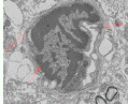(Press-News.org) On 16 July 2014 the German Institute for Quality and Efficiency in Health Care (IQWiG) published the results of a literature search for evidence-based clinical practice guidelines on the treatment of people with breast cancer. The aim of the report is to identify those recommendations from current guidelines of high methodological quality that may be relevant for the planned revision of the disease management programme (DMP). According to the results of the report, there is no compelling need for revision of any part of the DMP. However, IQWiG identified some aspects that could be supplemented and specified.
DMPs are revised regularly
After being commissioned by the Federal Joint Committee (G-BA), IQWiG systematically searched for new guidelines, assessed their methodological quality, and extracted relevant recommendations from these guidelines. In a next step these recommendations were compared with the specifications for the German DMP.
A need for revision may arise if new studies provide new evidence on a disease and its treatment. It is therefore legally specified that a DMP must be revised at regular intervals. It is the Institute's responsibility to firstly identify differences between the guideline recommendations and the DMP. It is then the G-BA'sresponsibility to examine whether these differences should actually lead to a revision of the DMP.
26 relevant guidelines identified
IQWiG was able to include a total of 26 guidelines in its investigation. Six of these guidelines comprehensively address the care of patients with breast cancer. Seven guidelines exclusively deal with early breast cancer, four further guidelines with advanced breast cancer (stage IV). The remaining nine guidelines address specific aspects such as radiotherapy, breast reconstruction or adjuvant systematic treatment.
Supplementations desirable
As IQWiG determined, there are several health-care aspects for which the recommendations of the DMP should be revised. Among other aspects, this applies to diagnostics and measures in primary therapy: The guidelines address the performance of a magnetic resonance imaging (MRI) scan in specific therapeutic indications, explicitly advising against routine MRI scans. With regard to radiotherapy for breast cancer, the guidelines provide recommendations on hypofractionated radiotherapy – an aspect currently not considered by the DMP.
Process of report production
IQWiG published the preliminary results in the form of the preliminary report in November 2013 and interested parties were invited to submit comments. At the end of the commenting procedure, the preliminary report was revised and sent as a final report to the commissioning agency in May 2014. The written comments submitted are published in a separate document at the same time as the final report. The report was produced in collaboration with external experts.
INFORMATION:
Breast cancer: DMP is largely consistent with guidelines
Current guidelines are more detailed regarding some aspects of treatment
2014-07-16
ELSE PRESS RELEASES FROM THIS DATE:
Self-assembling nanoparticle could improve MRI scanning for cancer diagnosis
2014-07-16
Scientists have designed a new self-assembling nanoparticle that targets tumours, to help doctors diagnose cancer earlier.
The new nanoparticle, developed by researchers at Imperial College London, boosts the effectiveness of Magnetic Resonance Imaging (MRI) scanning by specifically seeking out receptors that are found in cancerous cells.
The nanoparticle is coated with a special protein, which looks for specific signals given off by tumours, and when it finds a tumour it begins to interact with the cancerous cells. This interaction strips off the protein coating, ...
Improving tumour radiation therapy: When basic ions break DNA down
2014-07-16
Scientists now have a better understanding of how short DNA strands decompose in microseconds. A European team found new fragmentation pathways that occur universally when DNA strands are exposed to metal ions from a family of alkaline and alkaline earth elements. These ions tend to replace protons in the DNA backbone and at the same time induce a reactive conformation leading more readily to fragmentation. These findings by Andreas Piekarczyk, from the University of Iceland, and colleagues have been published in a study in EPJ D. They could contribute to optimising cancerous ...
Researchers advance understanding in immune response to infectious disease
2014-07-16
University of Leicester researchers have released evidence substantiating an unexpected dual role of an important component of the immune system.
Findings by researchers at the University's Department of Infection, Immunity and Inflammation – including three PhD graduates – are published in a paper for the journal 'Medical Microbiology and Immunology'.
The paper presents significant new findings about the protein properdin – an important part of the immune system. It is a positive regulator in the alternative pathway of complement activation – which means it plays a ...
What increases the neuronal plasticity of endogenous NSCs after focal cerebral ischemia?
2014-07-16
Stem cells can substitute the lost cells after central nervous system injury, decrease nervous tissue damage and promote neurofunctional recovery. Many brain injury models, including middle cerebral artery occlusion and traumatic brain injury models, have confirmed that neural stem cells (NSCs) can migrate from subventricular zone to injured cerebral cortex. But the mechanism underlying activation of endogenous NSCs in the ischemic brain remains unclear. Dr. Hyung-Seok Kim, Chonnam National University Medical School, Korea and his team revealed that NSCs were activated ...
Age-related changes in lateral ventricular width and periventricular white matter by DTI
2014-07-16
Ventricular enlargement has been suggested as a structural biomarker for normal aging and progression of some illnesses, such as Alzheimer's disease. However, the question of how this structural change in the brain in normal elderly affects change of white matters remains a topic of interest and concern. Dr. Sang Seok Yeo, College of Medicine, Yeungnam University, Republic of Korea, and his team performed a diffusion tensor imaging (DTI) study to investigate the question. They detected four regions of interest in the periventricular white matter of 60 normal subjected aged ...
Does intravenous transplantation of BMSCs promote neural regeneration after TBI?
2014-07-16
The brain has a low renewable capacity for self-repair and generation of new functional neurons in the treatment of trauma, inflammation and cerebral diseases. Cytotherapy is one option to regenerate central nervous system that aim at replacing the functional depleted cells due to traumatic brain injury (TBI). Bone marrow mesenchymal stem cells (BMSCs) are also considered a candidate for cytotherapy because they can differentiate into neurons/nerve cells, pass across blood-brain barrier, migrate into the injured region, secrete neurotrophic factor, and provide microenvironment ...
Cooperation among humans, a question of age
2014-07-16
This news release is available in Spanish.
The new research paper, which reports on one of the first experimental studies in the world to analyze how cooperative attitudes evolve in different age ranges, was written by the professors from the OpenSystems research group of the Department Fundamental Physics at the Universidad de Barcelona (UB), Josep Perelló and Mario Gutiérrez-Roig, Anxo Sánchez, of the Complex Systems Interdisciplinary Group (Grupo Interdisciplinar de Sistemas Complejos - GISC) of the Mathematics Department at the Universidad Carlos III de ...
Zhichan decoction increases dopaminergic neurons from transplanted NSCs in PD
2014-07-16
There is an increasing interest in Parkinson's disease (PD) treatment by increasing dopamine content and reducing dopaminergic metabolites in the brain. Xuming Yang, Shanghai Municipal Hospital of Traditional Chinese Medicine, China and his team detected dopamine content and dopaminergic metabolites in the midbrain of PD rats, which were treated by neural stem cell (NSC) transplantation and Zhichan decoction administration, using high-performance liquid chromatography, and determined global optimization of dihydroxyphenylacetic acid and homovanillic acid levels using genetic ...
Chrysophanol attenuates injury to hippocampal neurons in lead-exposed neonatal mice
2014-07-16
Previous studies have shown that chrysophanol protects against learning and memory impairments in lead-exposed adult mice. Ji Zhang, Hebei North University, China, proposed a hypothesis that chrysophanol can alleviate learning and memory dysfunction and hippocampal injury in lead-exposed neonatal mice. Results showed that chrysophanol alleviated hippocampal neuronal cytoplasmic edema, promoted mitochondrial crista fusion, significantly improved learning and memory abilities, decreased lead content in blood, brain, heart, spleen, liver and kidney, increased superoxide dismutase ...
Donating a kidney may make it difficult to change or initiate life and health insurance
2014-07-16
People who selflessly step up and donate a kidney can face insurance challenges afterwards, despite the lack of evidence that they have increased health risks. The finding, which comes from a new study published in the American Journal of Transplantation, suggests that actions by insurers may create unnecessary burden and stress for those choosing to donate and could negatively impact the likelihood of live kidney donation.
The impact of kidney donation on the ability to change or initiate health or life insurance following donation is unknown. To investigate, Dorry ...
LAST 30 PRESS RELEASES:
How much sleep do teens get? Six-seven hours.
Patients regain weight rapidly after stopping weight loss drugs – but still keep off a quarter of weight lost
GLP-1 diabetes drugs linked to reduced risk of addiction and substance-related death
Councils face industry legal threats for campaigns warning against wood burning stoves
GLP-1 medications get at the heart of addiction: study
Global trauma study highlights shared learning as interest in whole blood resurges
Almost a third of Gen Z men agree a wife should obey her husband
Trapping light on thermal photodetectors shatters speed records
New review highlights the future of tubular solid oxide fuel cells for clean energy systems
Pig farm ammonia pollution may indirectly accelerate climate warming, new study finds
Modified biochar helps compost retain nitrogen and build richer soil organic matter
First gene regulation clinical trials for epilepsy show promising results
Life-changing drug identified for children with rare epilepsy
Husker researchers collaborate to explore fear of spiders
Mayo Clinic researchers discover hidden brain map that may improve epilepsy care
NYCST announces Round 2 Awards for space technology projects
How the Dobbs decision and abortion restrictions changed where medical students apply to residency programs
Microwave frying can help lower oil content for healthier French fries
In MS, wearable sensors may help identify people at risk of worsening disability
Study: Football associated with nearly one in five brain injuries in youth sports
Machine-learning immune-system analysis study may hold clues to personalized medicine
A promising potential therapeutic strategy for Rett syndrome
How time changes impact public sentiment in the U.S.
Analysis of charred food in pot reveals that prehistoric Europeans had surprisingly complex cuisines
As a whole, LGB+ workers in the NHS do not experience pay gaps compared to their heterosexual colleagues
How cocaine rewires the brain to drive relapse
Mosquito monitoring through sound - implications for AI species recognition
UCLA researchers engineer CAR-T cells to target hard-to-treat solid tumors
New study reveals asynchronous land–ocean responses to ancient ocean anoxia
Ctenophore research points to earlier origins of brain-like structures
[Press-News.org] Breast cancer: DMP is largely consistent with guidelinesCurrent guidelines are more detailed regarding some aspects of treatment

